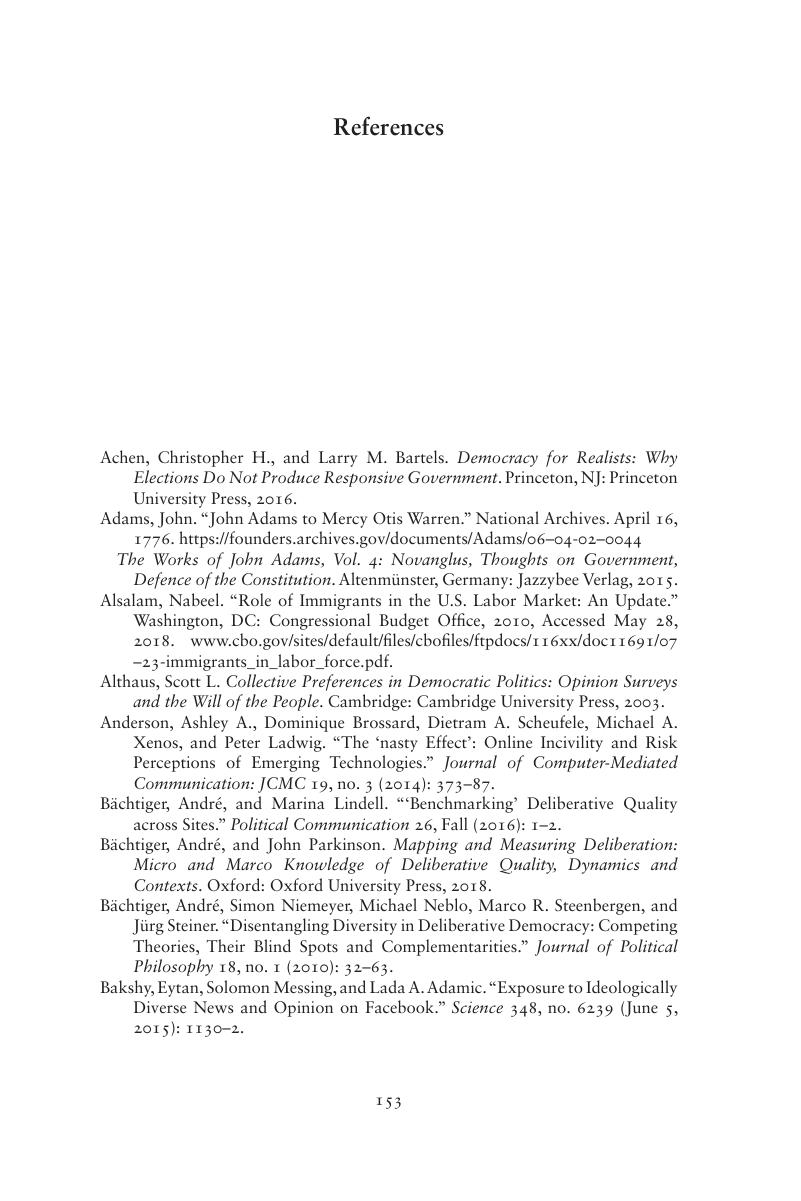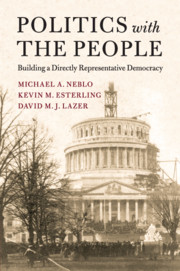Book contents
- Politics with the People
- Cambridge Studies in Public Opinion and Political Psychology
- Politics with the People
- Copyright page
- Dedication
- Epigraph
- Contents
- Figures
- Tables
- Acknowledgments
- Introduction
- 1 The Spirit and Form of Popular Government
- 2 Building a New Home Style
- 3 Half of Democracy
- 4 Rational Ignorance and Reasonable Learning
- 5 (The) Deliberative Persuasion
- 6 Representative Connections
- 7 Scaling Up and Scaling Out
- Conclusion
- Afterword
- Appendix on Statistical Methods for Causal Inference
- References
- Index
- Books in the series
- References
References
Published online by Cambridge University Press: 17 August 2018
- Politics with the People
- Cambridge Studies in Public Opinion and Political Psychology
- Politics with the People
- Copyright page
- Dedication
- Epigraph
- Contents
- Figures
- Tables
- Acknowledgments
- Introduction
- 1 The Spirit and Form of Popular Government
- 2 Building a New Home Style
- 3 Half of Democracy
- 4 Rational Ignorance and Reasonable Learning
- 5 (The) Deliberative Persuasion
- 6 Representative Connections
- 7 Scaling Up and Scaling Out
- Conclusion
- Afterword
- Appendix on Statistical Methods for Causal Inference
- References
- Index
- Books in the series
- References
Summary

- Type
- Chapter
- Information
- Politics with the PeopleBuilding a Directly Representative Democracy, pp. 153 - 162Publisher: Cambridge University PressPrint publication year: 2018

